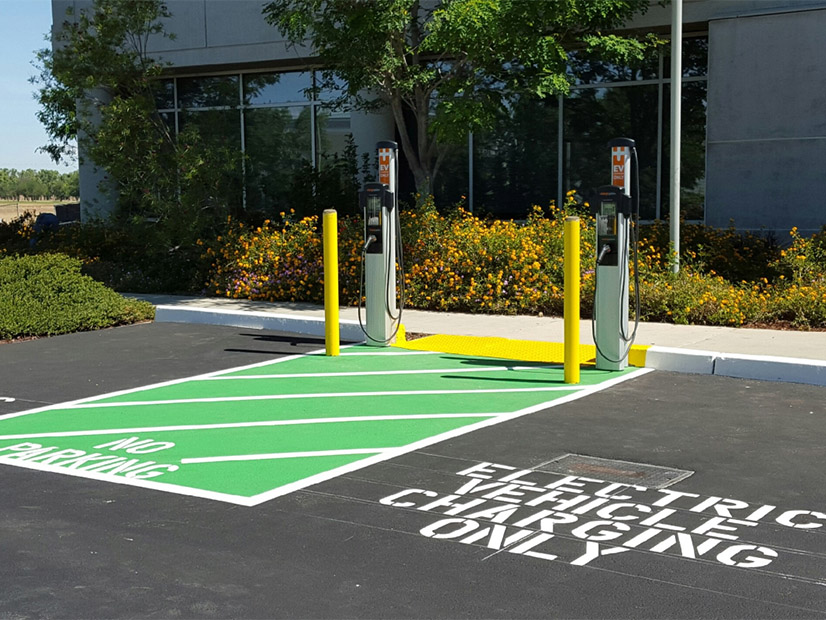
The California Energy Commission on Wednesday approved allocating up to $500 million in grant funding for electric vehicle charging incentive programs.
Up to $250 million in funding will go to CALSTART, a nonprofit group focused on clean transportation technologies; up to another $250 million will be awarded to the Center for Sustainable Energy (CSE), a nonprofit that provides energy program administration and consulting services.
The two groups will design, implement and manage incentive programs for EV charging infrastructure. The groups will develop the programs after gathering stakeholder and community input and holding public workshops.
Although details of the incentive programs have not yet been worked out, the programs are expected to include a focus on disadvantaged and low-income communities as well as multi-family housing.
CEC voted 5-0 on Wednesday to approve $1 million each to CALSTART and CSE to cover program startup costs. The commission also gave its executive director authority to allocate additional funds, up to a total of $250 million to each group, to implement the incentive programs.
The incentive programs are expected to add thousands of EV chargers in California, helping the state meet its goal of 250,000 public and shared chargers by 2025. A recent report estimated the state will need 1.2 million chargers for light-duty vehicles by 2030.
The state now has an estimated 195,000 EV chargers planned or already in place, said Phil Cazel of the CEC’s Fuels and Transportation Division.
The funding is coming, in part, from the CEC’s Clean Transportation Program, which got a boost this year when the state legislature approved a record $2.7 billion for zero-emission vehicle programs in FY 2021/22. (See Calif. Earmarks $3.9B for ZEVs Through 2024.)
“We are going to be watching this really, really closely,” CEC Chairman David Hochschild said. “The stakes are extremely high for the state, for our climate goals. We want this money to be well deployed, well administered and to get out quickly.”
In a separate agenda item, CALSTART also was awarded $226 million to run incentive programs for medium- and heavy-duty zero-emission vehicle charging and refueling infrastructure. The funds are in addition to a $50 million award to CALSTART in March. (See Calif. Energy Commission OKs $50M for Truck Charging.)
In total, the CEC approved $730 million in grants for transportation electrification projects, the largest amount of grant funding voted on in a single commission meeting, Hochschild said.
“This is really an important milestone,” he said.
Other groups awarded grant funding include Rail Propulsion Systems LLC, which will receive $270,000 for a demonstration project showing that a battery-electric locomotive can be charged wirelessly. The system will allow the locomotive to recharge along an eight-foot stretch of track.
Commissioner Patty Monahan said she envisioned the system as “opportunity charging,” where the locomotive could get a little “extra juice” at the wireless location rather than fully recharging.
“There’s not yet a full-on business case for this, but we’re making these exploratory investments because the future of charging is changing so fast,” Monahan said.
Another grant award went to the Center for Transportation and the Environment Inc., which will receive $3 million to design, build, test and demonstrate two zero-emission vehicles to be used in emergency disaster relief. The hydrogen fuel-cell backup generation vehicles, also known as H2BUG, will be designed to travel 90 miles each direction and provide at least 35 kW of continuous power for 48 hours or longer.
The vehicles will be designed similarly to incident command vehicles. They will support charging of cell phones and other devices, lighting, refrigerators and communication systems.



